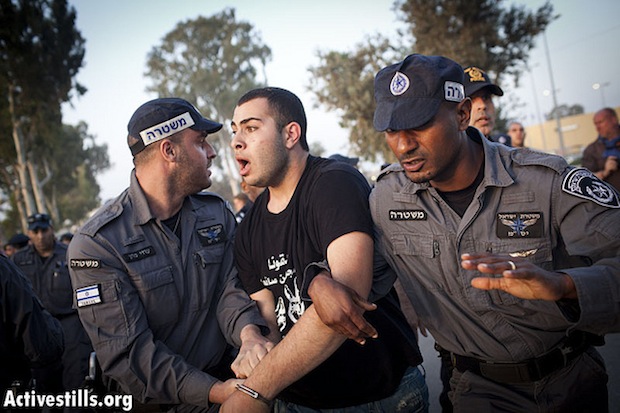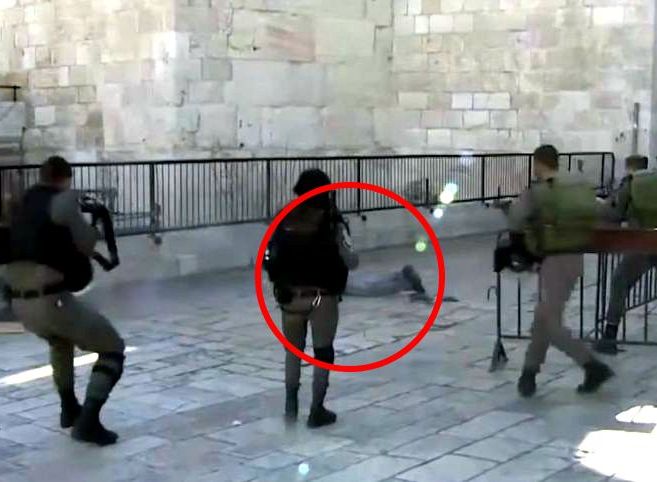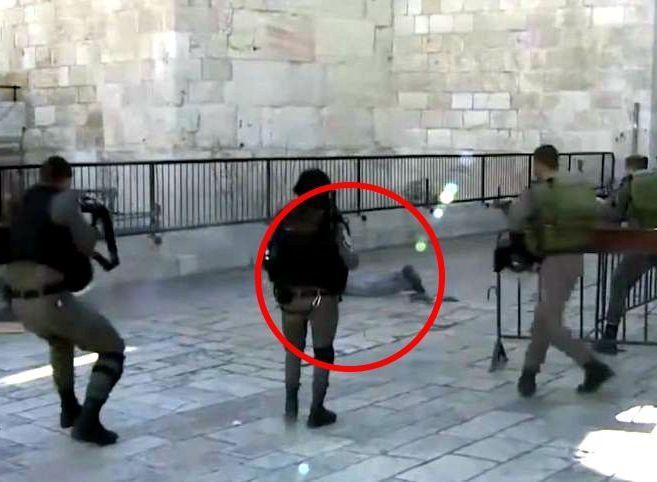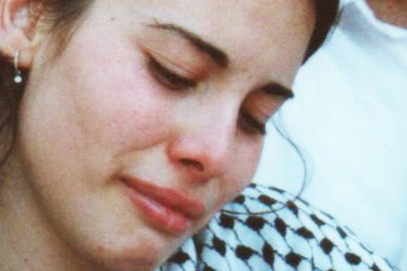Adalah, Addameer appeal closing of Mahash probe into killing of Palestinian minor rife with serious investigative failures
Adalah – The Legal Center for Arab Minority Rights in Israel and Addameer – Prisoner Support and Human Rights Association on 20 June 2016 appealed the Israeli Justice Ministry's decision to close its investigation into the killing of Palestinian minor Mustafa Khatib, 17-years old.
Israeli Border Police officers killed Khatib in October 2015 near Lions' Gate in East Jerusalem. According to police, officers opened fire after Khatib attempted to stab one of them.
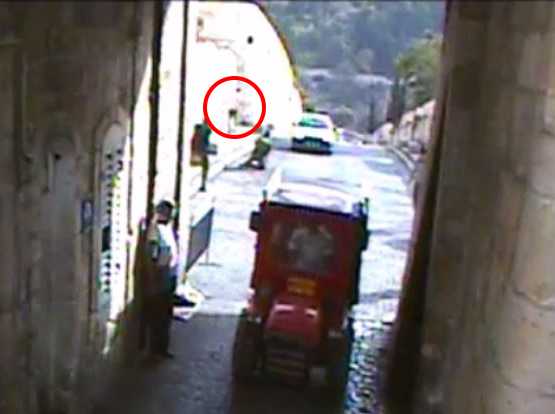
A screen grab from security camera footage showing Israeli Border Police officers shooting Mustafa Khatib in the back as he fled the scene. (Video courtesy of Israel Police)
Adalah filed the appeal, on behalf of the deceased's father Adel Khatib, with the Justice Ministry's Police Investigations Division (Mahash).
Mahash closed the initial complaint in the wake of Khatib’s killing claiming that, "no factual foundation was established suggesting a criminal offense on the part of any of the officers during the incident."
In the appeal, Adalah attorneys Fady Khoury and Aram Mahameed argued: "A review of Mahash's case file, of the police file, and of the partial visual documentation provided to the undersigned [Adalah] by the police, places in grave doubt the justification for closing the case. It also places in serious doubt the legality of the officers’ shooting on the scene that caused the deceased’s death. Further, a review of the materials appears to indicate that Mahash's action on this case was rife with serious investigative failures."
Khoury and Mahameed emphasized that, for all intents and purposes, Mahash had completely failed to investigate the incident.
"The materials make it clear that Mahash investigators did not carry out any independent investigatory action in the framework of this case. Mahash's decision to close its probe was based solely on materials it received from the police, including reports from police investigators who spoke with some of the officers involved in the incident. No further investigative action was taken [by Mahash], despite the fact that a number of questions have not been satisfactorily answered. Mahash's reliance exclusively on materials provided by police indicates a basic systemic flaw in Mahash's operations; the police have a clear conflict of interest and cannot be the body that investigates its own personnel (officers involved in the incident). This further strengthens our doubts regarding the effectiveness, objectivity, and independent nature of Mahash investigations."
Adalah's appeal highlighted a number of serious investigative failures that convincingly suggest the Mahash probe was conducted strictly for the sake of appearances:
- the operational police report included in the file was actually from a different incident that took place two days earlier - the investigative file of the Khatib killing doesn't even include a police report;
- the knife which was allegedly used in the attempted stabbing of the police officer did not appear amongst the copies of images provided to Khatib's lawyers;
- missing from the materials police handed over to Mahash were photographs taken by police at the scene, but Mahash did not request these photographs from the police;
- it is not clear from the investigative materials if the officer involved was, in fact, even stabbed and what was the nature of his injuries;
- the officers who opened fire were not asked why they decided to use lethal gunfire aimed at the deceased's torso when he did not present any life-threatening danger to the officers (as is seen in the video documentation);
- eyewitness testimony was not collected from bystanders at the scene;
- it is not clear why police decided to forgo essential elements of their investigation such as an autopsy, an external examination of the body, and a CT scan of the deceased.
Adalah's appeal also maintains that the video documenting the incident contradicts Mahash's conclusion that "the shooting was required in order to prevent a stabbing attempt and to neutralize danger."
Attorneys Khoury and Mahameed stressed that, "in the videos included in the police's investigative file one can see a Border Police officer fall on the ground as the deceased flees to the left. When the deceased was several meters from the officers, they opened fire on him from behind. It is clearly seen in the video that during the shooting in the direction of the deceased, he was fleeing and did not present any significant danger, certainly not a degree of danger that would have justified the use of deadly gunfire."
Furthermore, according to an autopsy conducted by the director of Al-Quds University’s Institute for Forensic Medicine, Dr. Sabir al-Aloul, the majority of rounds fired by police hit Khatib in his back and in the upper body.
"These circumstances, including the video … reveal that the shooting of the deceased was unjustified – certainly in the manner it was carried out," Adalah argued in its appeal. "There exists a suspicion that the shooting was carried out in violation of police open-fire regulations and therefore constitutes a violation of the law. This suspicion obligates Mahash to conduct a serious and independent investigation, and not rely solely upon partial investigatory materials collected by police in the aftermath of the incident."
In light of this series of serious investigative failures, Adalah demands that an investigation of Mustafa Khatib's killing be carried out in an independent, impartial, prompt, and efficient manner.
WATCH: Israeli police shooting of Mustafa Adel Al-Khatib












